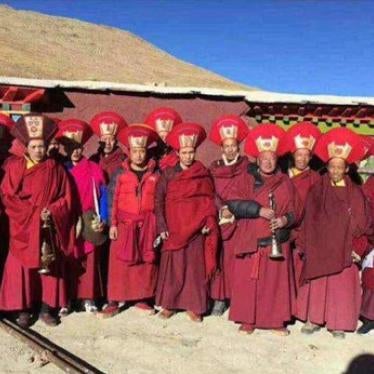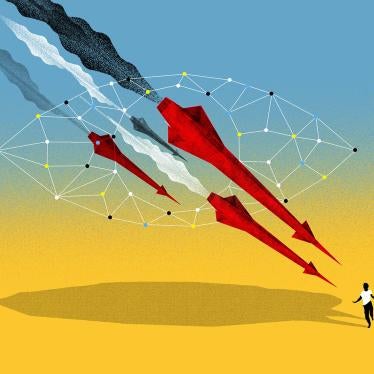(Islamabad) – Pakistan’s government has failed to act against abuses by the security and intelligence agencies, which continued to allow extremist groups to attack religious minorities, Human Rights Watch said today in its World Report 2013. The authorities did little to address attacks against journalists and human rights defenders, and committed serious abuses in counter-terrorism operations.
In its 665-page report, Human Rights Watch assessed progress on human rights during the past year in more than 90 countries, including an analysis of the aftermath of the Arab Spring.
“Pakistan’s human rights crisis worsened markedly in 2012 with religious minorities bearing the brunt of killings and repression,” said Ali Dayan Hasan, Pakistan director at Human Rights Watch. “While the military continued to perpetrate abuses with impunity in Balochistan and beyond, Sunni extremists killed hundreds of Shia Muslims and the Taliban attacked schools, students, and teachers.”
Human Rights Watch documented a sharp escalation in persecution of religious minorities in 2012. At least eight journalists were killed in Pakistan in 2012, including four in May alone. No one was held accountable in any of these cases. Media coverage of alleged abuses by state security forces and militant groups was impeded by a climate of fear, Human Rights Watch said. Journalists rarely reported on human rights abuses by the military in counterterrorism operations, and the Taliban and other armed groups regularly threatened media outlets over their coverage. Human Rights Watch recorded continued enforced disappearances and killings of suspected Baloch nationalists and militants by the military and affiliated agencies. Baloch nationalists and other militant groups also stepped up attacks on non-Baloch civilians.
In 2012, well over 400 members of the Shia Muslim population were killed in targeted attacks that took place across Pakistan. In Balochistan province over 125 were killed, most of them from the Hazara community.
The government was unable or unwilling to break the links between Pakistan’s military and intelligence agencies with extremist groups. Sunni militant groups, including those with known links to the Pakistani military, its intelligence agencies, and affiliated paramilitaries, such as the ostensibly banned Lashkar-e Jhangvi, operated openly across Pakistan, as law enforcement officials turned a blind eye to attacks. The government took no significant action to protect those under threat or to hold extremists accountable.
Suicide bombings, armed attacks, and killings by the Taliban, al Qaeda, and their affiliates continued in 2012, targeting politicians, journalists, religious minorities, and government security personnel. Militant Islamist groups attacked more than 100 schools in 2012, including students, teachers, and human rights advocates, Human Rights Watch said. The Taliban’s nearly fatal attack on Malala Yousafzai, a 15-year-old girl who had been an outspoken advocate for children’s right to education, garnered condemnation from across the world and the political spectrum in Pakistan.
The deadly attacks on minority groups show no sign of letting up in 2013, Human Rights Watch said. Lashkar-e-Jhangvi claimed responsibilityfor a January 10, 2013 double-suicide bombing in Quetta, Balochistan that killed 92 Hazara and wounded 120 more. Federal rule was imposed in the province after a four day sit-in by protesters who refused to bury the dead until government action was taken.
“Pakistan’s Shia community suffered bloody attacks in 2012, and then 2013 began with the single worst atrocity against the Hazara in Pakistan’s history,” Hasan said. “The government needs to show some backbone and act urgently to protect vulnerable communities such as the Hazara, or risk appearing indifferent or even complicit in the mass killing of its own citizens.”
Human Rights Watch urged Pakistan’s federal government and relevant provincial governments to promptly apprehend and prosecute those responsible for attacks on the Shia and others at risk. The government should direct civilian agencies and the military responsible for security to actively protect those facing attack from extremist groups, and to address the growing perception, particularly in Balochistan and Pakistan’s tribal areas, that state authorities look the other way when Shia are attacked. It should increase the number of security personnel in Shia majority areas and enclaves at high risk of attack, particularly the Hazara community in Quetta. The government should also actively investigate allegations of collusion between Sunni militant groups, military intelligence, and paramilitary forces, and hold accountable personnel found to be involved in criminal acts.
Blasphemy law convictions
Abuses under the country’s blasphemy law continued as dozens were charged in 2012. At least 16 people remained on death row and 20 were serving life sentences for blasphemy. Members of the Ahmadi religious community have been major targets for blasphemy prosecutions and subjected to specific anti-Ahmadi laws. Militant groups forced the demolition or closure of Ahmadi mosques and vandalized Ahmadi graves across Punjab province.
“Pakistan’s religious minorities endured another year of persecution, insecurity, and fear,” Hasan said. “The government’s failure to reform or repeal the blasphemy law provides extremists with legal tools to impose bigotry and perpetrate abuse.”
Counterterror abuses
State security forces routinely violated basic rights in the course of counterterrorism operations. Thousands of alleged Taliban members, rounded up in a nationwide crackdown that began in 2009 in Swat and the Federally Administered Tribal Areas (FATA), remained in military detention without charge or trial.
“The Pakistani military’s abusive counterterrorism practices are as counterproductive as they are unlawful,” Hasan said. “By committing abuses against suspected militants in Balochistan and Taliban in FATA, the military is fueling the militancy it is fighting.”
Judicial Overreach
In June 2012 Pakistan’s independent Supreme Court removed Prime Minister Yusuf Raza Gilani from office for refusing to bring criminal charges against the president, an act widely dubbed a “judicial coup.” The judiciary muzzled media criticism of itself in 2012 through threats of contempt of court proceedings. In October the high courts in Islamabad and Lahore issued orders to stop the broadcast of television programs critical of the judiciary. This bar on the media came in the aftermath of a multi-million dollar corruption scandal involving Arsalan Iftikhar, the son of the Supreme Court chief justice.
The Supreme Court continued to take apparently political actions in January 2013 by admitting for hearing a malicious petition filed against Sherry Rehman, Pakistan’s ambassador to the United States, because of her 2010 campaign to reform the country’s blasphemy law.
“Pakistan’s Supreme Court exercised its new-found independence by taking transparent political decisions,”Hasan said. “Its actions risk a backlash that could allow future governments to limit its independence in the name of good governance.”
Relations between Pakistan and the United States remained abysmal through much of 2012 over the 2011 “Salala attack.” The US carried out about 48 aerial drone strikes during 2012 on suspected al Qaeda and Taliban members near Pakistan's border with Afghanistan. These strikes resulted in claims of large numbers of civilian casualties, but lack of access to the conflict areas has prevented independent verification.
“CIA drone strikes continued to generate controversy, outrage, and civilian casualties in Pakistan,” Hasan said. “So long as the US refuses public accountability for CIA drone strikes, the agency should not be conducting them at all.”






